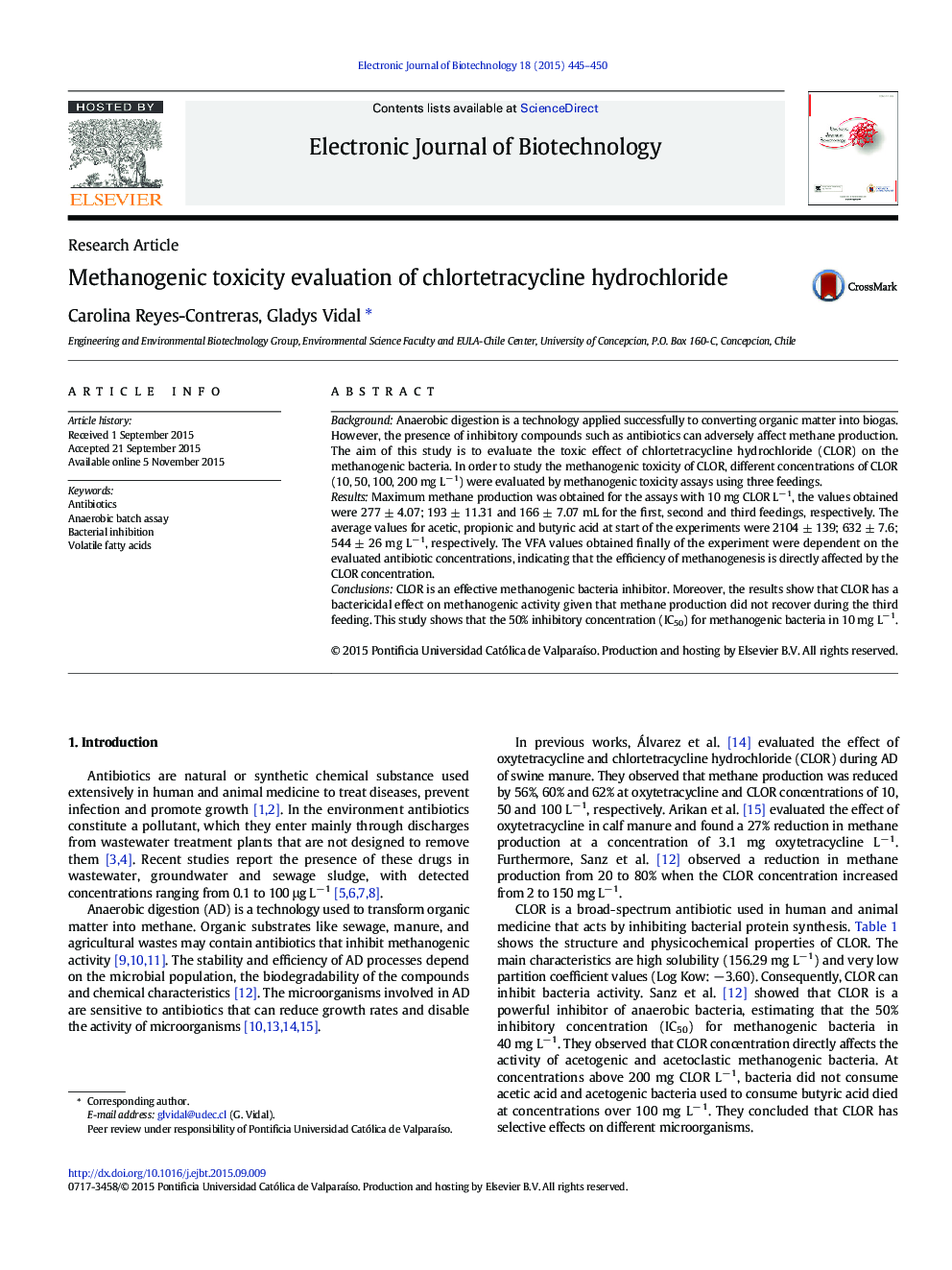| Article ID | Journal | Published Year | Pages | File Type |
|---|---|---|---|---|
| 200763 | Electronic Journal of Biotechnology | 2015 | 6 Pages |
BackgroundAnaerobic digestion is a technology applied successfully to converting organic matter into biogas. However, the presence of inhibitory compounds such as antibiotics can adversely affect methane production. The aim of this study is to evaluate the toxic effect of chlortetracycline hydrochloride (CLOR) on the methanogenic bacteria. In order to study the methanogenic toxicity of CLOR, different concentrations of CLOR (10, 50, 100, 200 mg L− 1) were evaluated by methanogenic toxicity assays using three feedings.ResultsMaximum methane production was obtained for the assays with 10 mg CLOR L− 1, the values obtained were 277 ± 4.07; 193 ± 11.31 and 166 ± 7.07 mL for the first, second and third feedings, respectively. The average values for acetic, propionic and butyric acid at start of the experiments were 2104 ± 139; 632 ± 7.6; 544 ± 26 mg L− 1, respectively. The VFA values obtained finally of the experiment were dependent on the evaluated antibiotic concentrations, indicating that the efficiency of methanogenesis is directly affected by the CLOR concentration.ConclusionsCLOR is an effective methanogenic bacteria inhibitor. Moreover, the results show that CLOR has a bactericidal effect on methanogenic activity given that methane production did not recover during the third feeding. This study shows that the 50% inhibitory concentration (IC50) for methanogenic bacteria in 10 mg L− 1.
